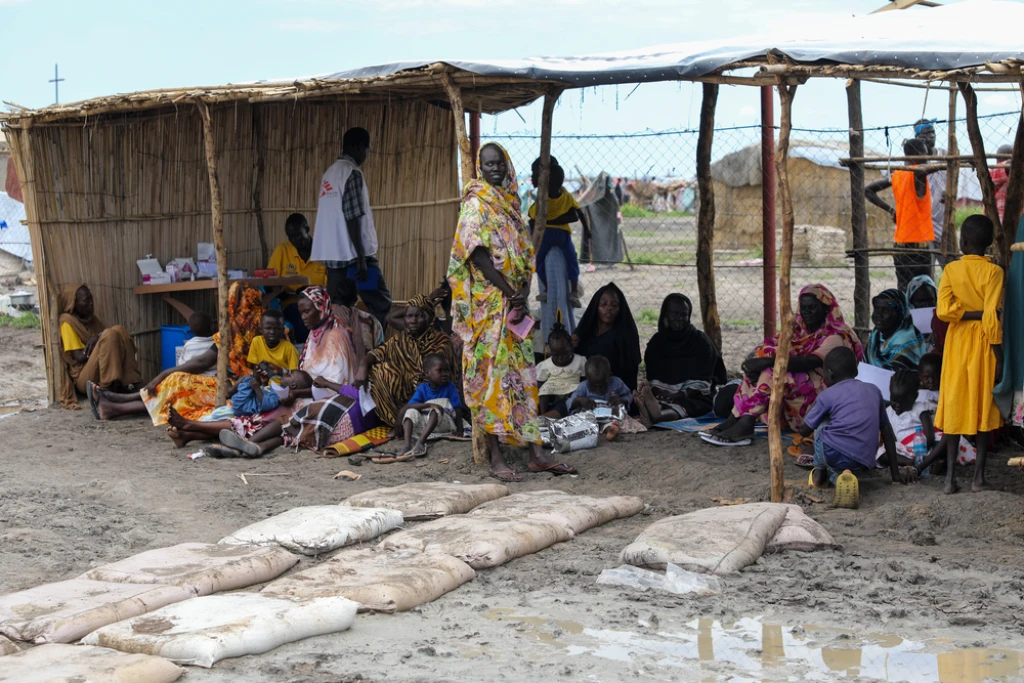
Médecins Sans Frontières (MSF) has called for an urgent and improved medical and humanitarian response for people fleeing conflict in Sudan and entering South Sudan through Renk.
It says since the fighting erupted in Sudan in April 2023, around 290,000 individuals have entered South Sudan—80 per cent of them through Joda border in Upper Nile State.
It states that many of them, mostly returnees, would temporally take refuge at Renk and this is often exhausting and painful, as they have limited access to food, shelter, water, sanitation, and healthcare.
Currently, MSF is supporting Renk civil hospital in the measles isolation ward, an inpatient therapeutic feeding center and a pediatric ward.
“Aid is woefully inadequate in Renk as compared to the needs that are growing every day. We are calling on the humanitarian and medical groups to do more by strengthening medical and humanitarian activities at the entry point and at transit centers,” says MSF head of mission in South Sudan, Jocelyn Yapi in a statement.
“Basic healthcare services should always be made available on the border for those coming with medical conditions. A systematic vaccination catch-up should be also available 24/7 on the border given the current low vaccination coverage in Sudan and ongoing outbreak of measles in both countries.”
The statement seen by The Radio Community mentions that the situation is very alarming as many people, especially the children, are arriving at the border with health issues.
The health issues include measles or malnutrition which need medical attention.
‘‘Malaria and malnutrition rise among South Sudanese returnees in Renk, requiring stronger medical response.’’
Yapi goes on to say malnourished children must be given urgent nutritional support on the border and at once transferred to the medical facilities.
“Relief items such as mosquito nets, plastic sheets and other essential non-food items should be provided at the border so nobody who is in need is missed out,” she adds.
Years of conflict have already caused one of the world’s largest humanitarian crises in South Sudan. As the country already suffers from regular disease outbreaks, flooding, displacements and high rates of malnutrition, the arrival of returnees is another burden, and the current response is incapable of absorbing additional needs.
The country requires more attention and support to deal with the ongoing humanitarian crisis, and another emergency caused by the conflict in Sudan.